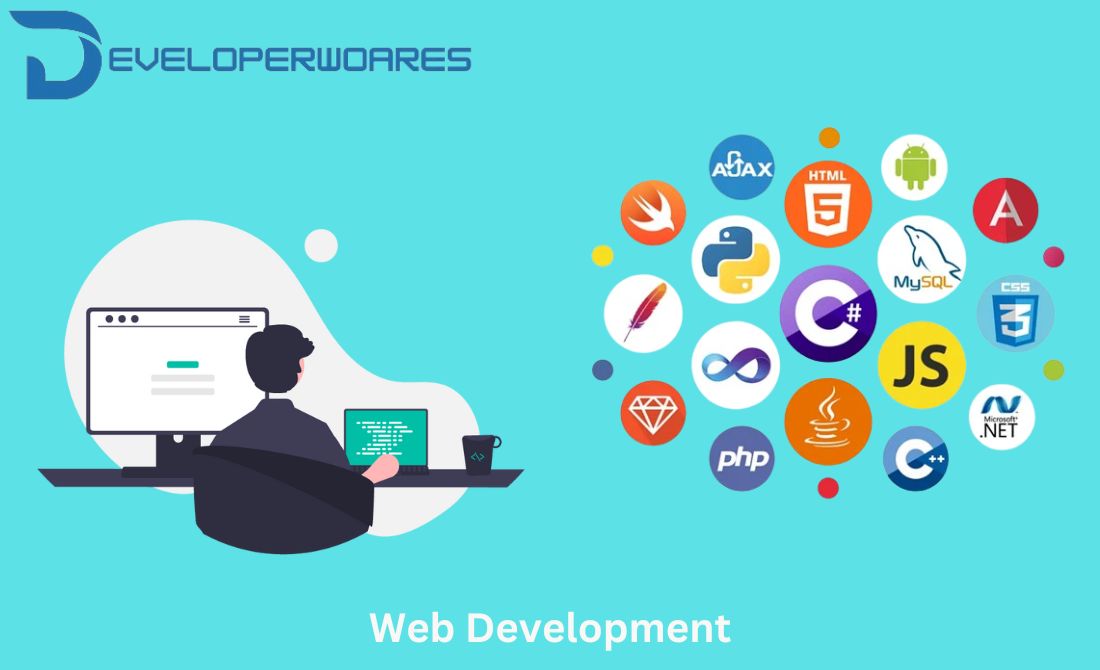A career in web development continues to be in high demand. The reason for this is that web development professionals make websites and applications – a part of everyday modern life. We all come across websites created by web developers daily. But what is web development, and what does a web developer do?
For a beginner, it may seem complicated, perplexing, and even inaccessible. So, we’ve put together a basic introduction to web development so you can get an idea of what it takes to become a full-fledged web developer.
You’ll learn all the necessary skills and tools you’ll need to break into this field in this article, which covers website development basics in detail. Go over the details to see if web development is for you, and start learning the essential skills before enrolling in a degree for web developers.
What is Web Development?
Web development is a rapidly growing field, with most businesses and organizations reaching out to their target audiences through websites and web apps. Creating web pages using Hypertext Markup Languages (HTML), which define the page’s structure and content.
An important part of web development is building and maintaining websites; it’s the work behind the scenes to make them look good, run quickly, and provide a seamless user experience.
This is done by developers, or ‘devs,’ who use coding languages. They use different languages depending on the tasks they are performing and the platforms they are using.
It is a great career option to learn web development skills since they are in great demand worldwide and are well-paid. You do not need a traditional university degree to get a job in this higher-paying field.
Generally, web development can be divided into front-end (the user-facing side) and back-end (the server side).
What does a web developer do?
A web developer builds and maintains websites and web applications. It is they who write the code that creates the functionality and appearance of online experiences. Websites and online applications that you use – from social media sites to video and music streaming to business software – were developed by web developers.
The role of web developers within an organization is to collaborate closely with other stakeholders to determine what needs to be built and how the end product should look and function.
Stakeholders include web designers, product managers, and user experience (UX) designers. Website designers create the look and feel of a website, and developers turn the designs into a working website.
Web developers are responsible for maintaining websites and applications as well as building them. The site maintenance process includes finding and fixing bugs in the program, implementing new features, integrating third-party software, and improving usability, speed, and security.
Types of Web Development
There are many types of web developers, so it is helpful to narrow it down to a few: front-end web developers, back-end web developers, full-stack developers, and specialized developers.
Front-End Developers
A front-end developer (or client-side developer) works on the website’s “front end,” which visitors can interact with. You probably picture the front end of a website – the text, images, colors, and other elements that make it look that way. Front-end developers use three languages – HTML, CSS, and JavaScript – to create the front end in the user’s browser and ensure that the pages are compatible across different devices and screens. Later, we’ll discuss these languages in more detail.
Back-End Developers
In back-end development, developers work on everything behind the scenes that normal users don’t see. The back-end developers are responsible for things like database storage, server management, security, integrations, and program logic, which ensure that the front-end works smoothly. Server-side languages like Python, Java, and SQL are used in back-end development.
Full-Stack Developers
As a full-stack developer, you will contribute to both the front-end and back-end of a website and understand the “full stack” of technologies needed to power it. Full-stack developers work across different roles for many years to gain a thorough understanding of both the front end and back end of website development. The result is that they can implement a site from its interface to its server functions.
What is the importance of web development?
Can you believe that over 5.30 billion people are connected to the Internet? More than half of our global population is actively engaged in research, connection, education, and entertainment through this incredible digital universe. I believe the Internet isn’t just a luxury; it’s an essential part of our daily lives.
Due to the rapidly growing number of Internet users, web development is an industry that is rapidly expanding. The employment of web developers is expected to grow by 13% between now and 2030, which is much faster than most other technology careers. Having the opportunity to be a part of such a dynamic field is an exciting time in my career.
Final thoughts
Job markets are becoming more difficult. A growing number of traditional jobs are being eliminated every day. So why not acquire skills that will keep you employed and possibly wealthy for a long time?
It’s a great opportunity for you to become a web developer now that you know what website development is and how to develop a website.
We rely on technology more than ever to work, communicate, access medical services, shop, and more. We suggest you go for it if you’re contemplating joining this exciting industry and developing the future technology.
The great thing is that you don’t need a fancy, extravagant degree to get into the field. Are you ready to create a professional website? Your exciting web application development journey can begin now.
Please let us know if you find this article interesting. If you have any questions, please do not hesitate to ask!

